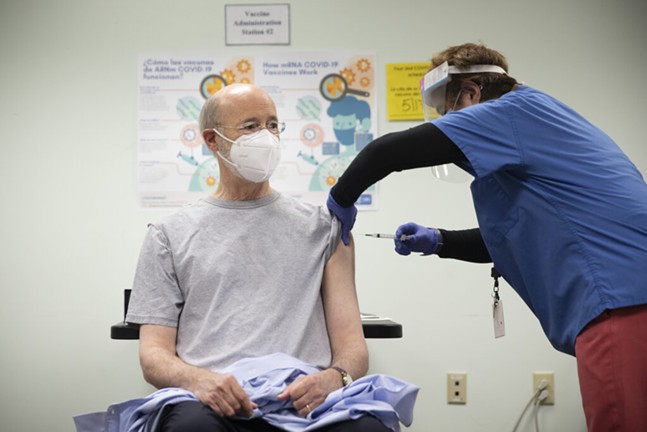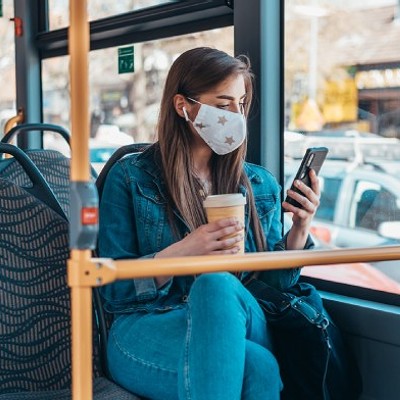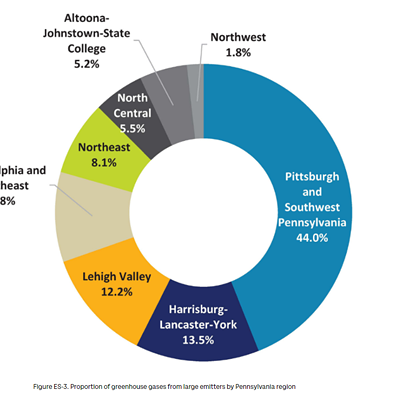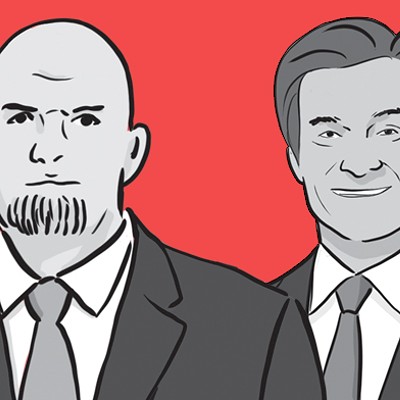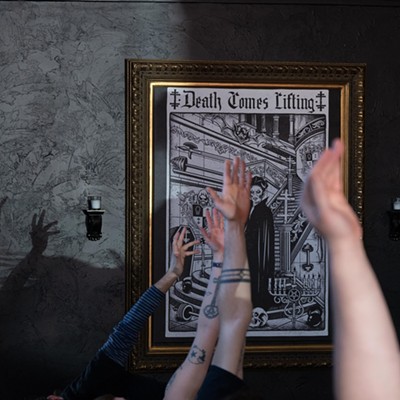Wolf offers commonwealth staff more time off to encourage COVID-19 vaccinations
To incentivize COVID-19 vaccinations, the Wolf administration is offering additional paid leave for Pennsylvania state employees who get their shot by the end of the year.
Gov. Tom Wolf, a Democrat, announced Monday that administration staff members — more than 70,000 — are eligible for five days of paid leave for getting vaccinated against the coronavirus by Dec. 31.
The offer, which includes those already vaccinated, must be used between Dec. 20 and March 31, and applies to unionized and non-represented or management employees. Employees who have unused time by the end of March will be paid a lump sum.
“As one of the largest employers in Pennsylvania, we want to make sure our workers have the resources they need to be safe and healthy and be an example to other businesses to follow,” Secretary of Administration Michael Newsome said in a statement. “Most of our employees, approximately two-thirds, have worked in-person throughout the pandemic and continue to do so.”
The additional paid leave, he said, aims to support employees and help end the pandemic. According to the administration, the incentive program is coming out of agencies’ budgets.
As of Friday, more than 71% of eligible Pennsylvanians are fully vaccinated against the coronavirus. Pennsylvania, which is the fifth-most populous state, ranks fifth for total doses administered.
Wolf previously offered COVID-19 emergency sick leave for state employees who are subject to or caring for someone in quarantine or isolation due to COVID-19. That emergency leave is extended until the end of June 2022.
The administration offered employees up to eight hours of paid leave to get their coronavirus vaccination in August. Employees who verified their vaccination status to receive that paid day off are automatically eligible for the additional five days of leave.
“By encouraging commonwealth employees to get the COVID-19 vaccine and stay home if they are sick, we are increasing the safety of our workplaces, as well as our communities,” Newsome added.
State Treasurer Stacy Garrity, a Republican, denounced the plan in a statement, saying it could cost taxpayers an estimated more than $100 million.
“This decision by Governor Wolf — made in a back-room deal completely outside of the state budget process and away from public scrutiny — is fiscally irresponsible,” Garrity said. “Treasury estimates it could cost Pennsylvania taxpayers more than $100 million. As an independent fiscal officer charged with protecting money that belongs to hard-working Pennsylvanians, I call on the governor to drop this ill-conceived scheme immediately.”
She added: “This is taxpayer money, and it is my duty to manage it carefully and prudently. As the head of an independent agency, I’m choosing to protect taxpayers rather than join the governor’s scheme.”
House Majority Leader Kerry Benninghoff (R-Centre) blasted the administration’s offer, calling it “not only fiscally irresponsible” but also “tone-deaf.”
“Pennsylvania taxpayers deserve better,” Benninghoff said in a statement. “And those who have suffered financial devastation as a result of this administration’s destructive unilateral action are due an explanation as to why they are struggling to make ends meet while funding additional vacation time for the governor’s employees.”
Elizabeth Rementer, a spokesperson for Wolf, told the Capital-Star that calling the incentive a “backdoor deal” is “perplexing, completely inaccurate, and not helpful toward our ongoing efforts to encourage vaccinations and fight this pandemic.”
Rementer added: “No new funding is necessary — existing agency budgets will cover the cost.”
Marley Parish is a reporter for the Pennsylvania Capital-Star, where this story first appeared.
Gov. Tom Wolf, a Democrat, announced Monday that administration staff members — more than 70,000 — are eligible for five days of paid leave for getting vaccinated against the coronavirus by Dec. 31.
The offer, which includes those already vaccinated, must be used between Dec. 20 and March 31, and applies to unionized and non-represented or management employees. Employees who have unused time by the end of March will be paid a lump sum.
“As one of the largest employers in Pennsylvania, we want to make sure our workers have the resources they need to be safe and healthy and be an example to other businesses to follow,” Secretary of Administration Michael Newsome said in a statement. “Most of our employees, approximately two-thirds, have worked in-person throughout the pandemic and continue to do so.”
The additional paid leave, he said, aims to support employees and help end the pandemic. According to the administration, the incentive program is coming out of agencies’ budgets.
As of Friday, more than 71% of eligible Pennsylvanians are fully vaccinated against the coronavirus. Pennsylvania, which is the fifth-most populous state, ranks fifth for total doses administered.
Wolf previously offered COVID-19 emergency sick leave for state employees who are subject to or caring for someone in quarantine or isolation due to COVID-19. That emergency leave is extended until the end of June 2022.
The administration offered employees up to eight hours of paid leave to get their coronavirus vaccination in August. Employees who verified their vaccination status to receive that paid day off are automatically eligible for the additional five days of leave.
“By encouraging commonwealth employees to get the COVID-19 vaccine and stay home if they are sick, we are increasing the safety of our workplaces, as well as our communities,” Newsome added.
State Treasurer Stacy Garrity, a Republican, denounced the plan in a statement, saying it could cost taxpayers an estimated more than $100 million.
“This decision by Governor Wolf — made in a back-room deal completely outside of the state budget process and away from public scrutiny — is fiscally irresponsible,” Garrity said. “Treasury estimates it could cost Pennsylvania taxpayers more than $100 million. As an independent fiscal officer charged with protecting money that belongs to hard-working Pennsylvanians, I call on the governor to drop this ill-conceived scheme immediately.”
She added: “This is taxpayer money, and it is my duty to manage it carefully and prudently. As the head of an independent agency, I’m choosing to protect taxpayers rather than join the governor’s scheme.”
House Majority Leader Kerry Benninghoff (R-Centre) blasted the administration’s offer, calling it “not only fiscally irresponsible” but also “tone-deaf.”
“Pennsylvania taxpayers deserve better,” Benninghoff said in a statement. “And those who have suffered financial devastation as a result of this administration’s destructive unilateral action are due an explanation as to why they are struggling to make ends meet while funding additional vacation time for the governor’s employees.”
Elizabeth Rementer, a spokesperson for Wolf, told the Capital-Star that calling the incentive a “backdoor deal” is “perplexing, completely inaccurate, and not helpful toward our ongoing efforts to encourage vaccinations and fight this pandemic.”
Rementer added: “No new funding is necessary — existing agency budgets will cover the cost.”
Marley Parish is a reporter for the Pennsylvania Capital-Star, where this story first appeared.

